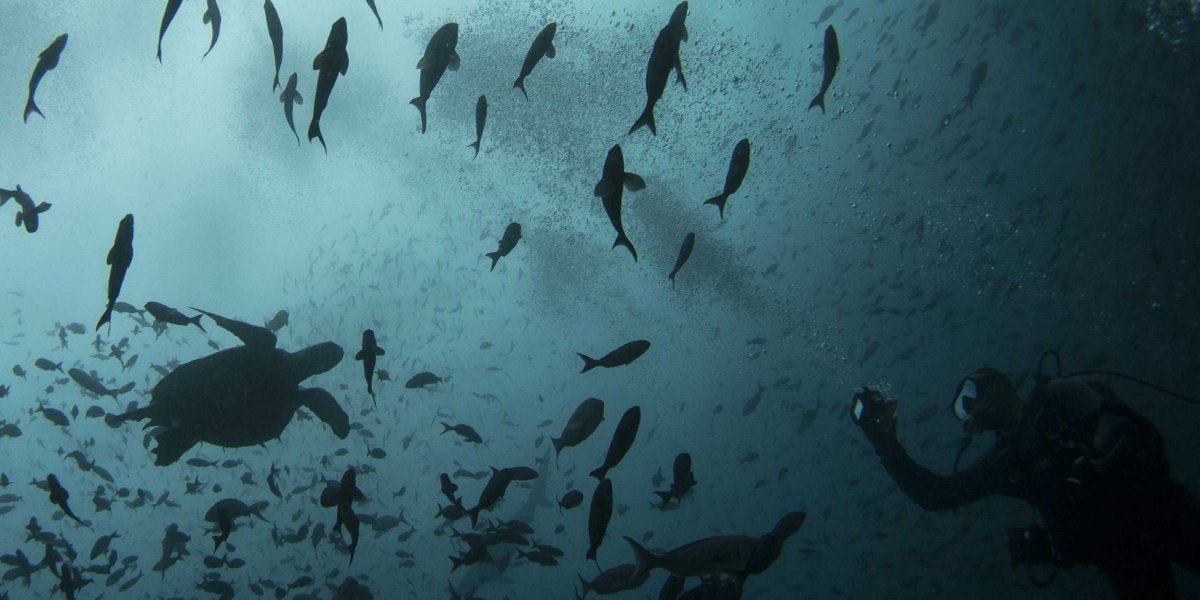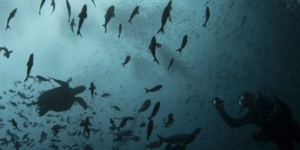In perhaps its final attempt at reaching to an agreement so as to start negotiations for an international treaty on biodiversity with regard vis-à-vis the high seas, the U.N’s Ad Hoc Working Group is expected to take a decision after having met for a meeting that lasted for four days. The deadlines to begin negotiations is September 2015.
“The world’s international waters, or high seas, are a modern-day Wild West, with weak rules and few sheriffs,” said NRDC’s Lisa Speer. In order to get a grip on this scenario, countries have to sit together and hammer out the basic ground rules. “This is the last scheduled meeting where we hope to see the decision to launch negotiations materialize,” said Sofia Tsenikli, a senior oceans policy advisor from Greenpeace International.
Once the negotiations actually begin, a timeline can be set for the final treaty. Sofia Tsenikli was of the opinion that “it really depends on the issues that will come up during the negotiations.”
A coalition of environmental groups have come together and have formed an umbrella group called the High Seas Alliance. Since the high seas make up around 50% of our planet’s surface and roughly two-thirds of our oceans, they feel it is high time that this vast expanse of sea has rules which countries adhere to. Currently the high seas are beyond any country’s national jurisdiction.
“This means it’s the largest unprotected and lawless region on Earth,” noted the High Seas Alliance.
There is no doubt amongst all countries and they all agree that the lack of governance on such huge tracts in the ocean is a major contributor to the degradation of the ocean’s biodiversity caused by us, humans. The high Seas Alliance feels that in face of the growing human activities, including over-fishing, geo-engineering, pollution and climate change, it is essential that an agreement be set that governs the comportment of countries.
Representative from countries have to sit together, hammer out and carve rules that govern issues such as the environmental impact of human activity in areas beyond the scope of national jurisdiction, define protected areas for marine life, capacity building of marine ecology and sharing the same with other countries and sharing the benefits of genetic marine resources.
Members of the United Nations have a historic opportunity to create a new beginning and set rules that nations follows vis-à-vis their actions on the high seas. It is critical that these areas are conserved, sustained and protected, for they cover almost 50% of our habitat and is beyond the national boundaries of individual countries, felt Kristina M. Gjerde, who is a senior high seas policy advisor at the International Union for Conservation of Nature (IUCN).
The U.S, Canada, Iceland, Russia and Japan are currently opposing any movement on such a treaty.
Greenpeace felt that the U.S in particular is against establishing a U.N framework that govern these ocean sanctuaries, however their stand is contradictory to its own leadership on ocean issues such establishing marine reserves in Exclusive Economic Zones, as well as unregulated, unreported illegal fishing in the artic.
According to the High Seas Alliance, an international treaty is the need of the hour. It is the only way to address the “inadequate, highly fragmented and poorly implemented legal and institutional framework that is currently failing to protect the high seas – and therefore the entire global ocean – from the multiple threats they face in the 21st century.”
References:
http://www.ipsnews.net/2015/01/final-push-to-launch-u-n-negotiations-on-high-seas-treaty/
“The world’s international waters, or high seas, are a modern-day Wild West, with weak rules and few sheriffs,” said NRDC’s Lisa Speer. In order to get a grip on this scenario, countries have to sit together and hammer out the basic ground rules. “This is the last scheduled meeting where we hope to see the decision to launch negotiations materialize,” said Sofia Tsenikli, a senior oceans policy advisor from Greenpeace International.
Once the negotiations actually begin, a timeline can be set for the final treaty. Sofia Tsenikli was of the opinion that “it really depends on the issues that will come up during the negotiations.”
A coalition of environmental groups have come together and have formed an umbrella group called the High Seas Alliance. Since the high seas make up around 50% of our planet’s surface and roughly two-thirds of our oceans, they feel it is high time that this vast expanse of sea has rules which countries adhere to. Currently the high seas are beyond any country’s national jurisdiction.
“This means it’s the largest unprotected and lawless region on Earth,” noted the High Seas Alliance.
There is no doubt amongst all countries and they all agree that the lack of governance on such huge tracts in the ocean is a major contributor to the degradation of the ocean’s biodiversity caused by us, humans. The high Seas Alliance feels that in face of the growing human activities, including over-fishing, geo-engineering, pollution and climate change, it is essential that an agreement be set that governs the comportment of countries.
Representative from countries have to sit together, hammer out and carve rules that govern issues such as the environmental impact of human activity in areas beyond the scope of national jurisdiction, define protected areas for marine life, capacity building of marine ecology and sharing the same with other countries and sharing the benefits of genetic marine resources.
Members of the United Nations have a historic opportunity to create a new beginning and set rules that nations follows vis-à-vis their actions on the high seas. It is critical that these areas are conserved, sustained and protected, for they cover almost 50% of our habitat and is beyond the national boundaries of individual countries, felt Kristina M. Gjerde, who is a senior high seas policy advisor at the International Union for Conservation of Nature (IUCN).
The U.S, Canada, Iceland, Russia and Japan are currently opposing any movement on such a treaty.
Greenpeace felt that the U.S in particular is against establishing a U.N framework that govern these ocean sanctuaries, however their stand is contradictory to its own leadership on ocean issues such establishing marine reserves in Exclusive Economic Zones, as well as unregulated, unreported illegal fishing in the artic.
According to the High Seas Alliance, an international treaty is the need of the hour. It is the only way to address the “inadequate, highly fragmented and poorly implemented legal and institutional framework that is currently failing to protect the high seas – and therefore the entire global ocean – from the multiple threats they face in the 21st century.”
References:
http://www.ipsnews.net/2015/01/final-push-to-launch-u-n-negotiations-on-high-seas-treaty/






